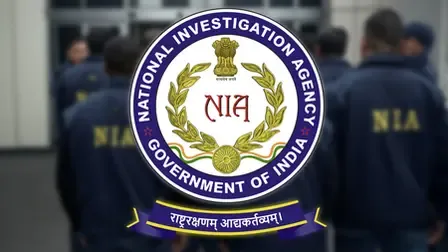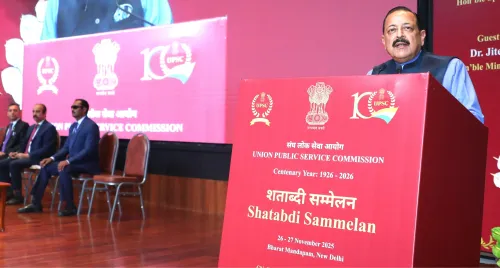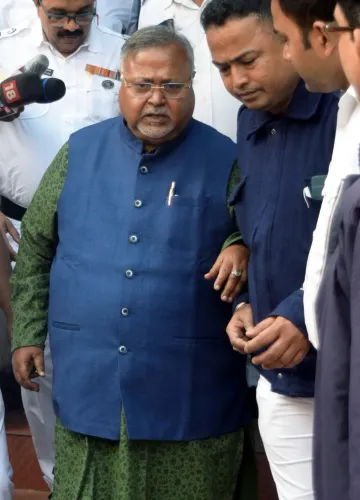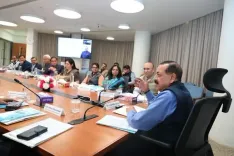Is 13.97 Lakh Tonne E-Waste Generated in 2024-25?

Synopsis
Key Takeaways
- 13.97 lakh tonne of e-waste generated in 2024-25.
- Increase from 12.54 lakh tonne in 2023-24.
- New E-Waste (Management) Rules, 2022 in effect since April 2023.
- Focus on Extended Producer Responsibility (EPR).
- Regulations promote a Circular Economy.
New Delhi, Aug 11 (NationPress) A staggering 13.97 lakh tonne of e-waste was generated in 2024-25, marking an increase from 12.54 lakh tonne in 2023-24, as reported to the Lok Sabha on Monday.
The Union Minister of State for Environment, Forest and Climate Change (MoEF&CC), Kirti Vardhan Singh, provided this information in a written statement. The generation of e-waste at the national level is estimated by the Central Pollution Control Board (CPCB), utilizing countrywide sales data from registered producers and the average lifespan of the listed Electrical and Electronic Equipment (EEE), as stipulated in the E-Waste (Management) Rules, 2022.
Singh indicated that the ministry has thoroughly revised the previous E-Waste (Management) Rules, 2016 and introduced the new E-Waste (Management) Rules, 2022 in November 2022, which have been effective since April 1, 2023.
These regulations govern 106 types of EEE detailed in Schedule-I, including discarded mobile devices, computers, and uninterruptible power supplies (UPS).
The E-Waste (Management) Rules, 2022 aim to manage e-waste in an environmentally responsible manner and establish an enhanced Extended Producer Responsibility (EPR) framework for e-waste recycling. This mandates all manufacturers, producers, refurbishers, and recyclers to register on a portal created by the CPCB.
The updated provisions aim to guide the informal sector into the formal economy, facilitating e-waste recycling responsibly. Additionally, these regulations promote the Circular Economy through the EPR framework and encourage the scientific recycling and disposal of e-waste.
Regarding the safe disposal of battery waste, Singh stated, “The ministry introduced the Battery Waste Management Rules, 2022 on August 24, 2022, to ensure the environmentally sound management of battery waste.”
These rules encompass various battery types, including Electric Vehicle batteries, portable batteries, automotive batteries, and industrial batteries, Singh noted.
According to these regulations, producers, including importers, face mandatory EPR targets for the collection and recycling or refurbishment of discarded batteries.
The EPR framework under the Battery Waste Management Rules, 2022 prohibits the disposal of waste batteries in landfills.
Singh mentioned that the CPCB has released a Standard Operating Procedure (SOP) for lead-acid battery recycling, detailing safe methods for draining hazardous fluids and their disposal and repurposing in other industrial processes.
A centralized online EPR portal has been established for producers and recyclers to register, enabling the exchange of EPR certificates to meet producers' obligations, Singh added.









